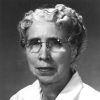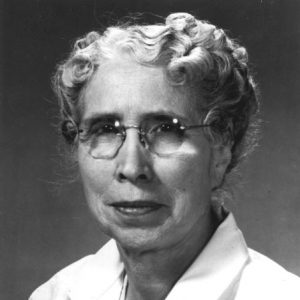calsfoundation@cals.org
Sex Education
The United States does not federally mandate sex education in public schools. Instead, the government leaves decisions about if and how to teach sex education up to the individual states, and many states leave the decision up to individual school districts. As a result, by 2022, sex education was only state mandated in twenty-nine states and the District of Columbia. Of these, twenty-eight mandated that the education cover sex and HIV. Twenty-two of the twenty-nine states required that discussion of sex and/or HIV education be medically accurate. However, the definition of “medically accurate” was not the same in all twenty-two states.
For various reasons—but especially because of strict federal government funding requirements—America continues to use an abstinence-only or “abstinence-plus” approach to sex education. While students are taught that abstinence is the only sure way to protect against unwanted pregnancy, sexually transmitted infections (STIs), and sexually transmitted diseases (STDs), approximately forty percent of twenty-first-century students are not practicing abstinence. Teenagers also lack education about condom and other contraception use. As a result, teen pregnancy and STIs have become leading public health issues in America. Research has shown that states that emphasize abstinence had higher teen pregnancy and birth rates; conversely, the lowest teen pregnancy rates were in states that taught comprehensive sex and/or HIV education and covered contraception and condom use along with discussions about abstinence.
Arkansas has had the nation’s highest rate of teen birth per capita since 2005. In addition, according to the 2015 Arkansas Youth Risk Behavior Survey (YRBS), approximately 44 percent of females and 47 percent of males in high school reported having had sexual intercourse. This is significantly higher than the nationwide averages in 2015 of 39.2 percent for females and 43.2 percent for males.
Arkansas public schools are not required by federal law to teach sex education, but it is an approved topic by the Arkansas Department of Education. According to Arkansas Code § 6-18-703, if sex education is taught, “abstinence must be stressed and sexual activity must be discouraged.” Arkansas schools are not required to cover information about contraception (condom use specifically), sexual or gender orientation, or the negative outcomes of teen sex. The information provided in sex education is not required to be medically accurate, age appropriate, culturally appropriate, unbiased, or free from religious promotion. If Arkansas schools opt to teach sex education, they use the Arkansas Department of Education’s Health and Physical Education Standards to guide the curriculum. The standards include topics such as contraceptives, child sexual abuse, and date rape but do not include topics related to abortion or sexual orientation.
Arkansas uses federal funding resources available to states to teach sex education. For example, in 2017, Arkansas received $393,184 in Division of Adolescent and School Health (DASH) funds, $451,596 in Personal Responsibility Education Program (PREP) funds, and a $791,939 Title V award. Arkansas did not receive funding from Teen Pregnancy Prevention Program (TPPP) or Sexual Risk Avoidance Education (SRAE) in 2017. The money received from the various sources goes to the Arkansas Department of Education, which then decides what community organizations, non-governmental organizations (NGOs), schools, etc., receive funding from the federal sources.
Below is a summary of Arkansas’s sex education policies and requirements as outlined in the Sexual Information and Education Council of the U.S. (SIECUS) 2017 state profile of Arkansas.
- Arkansas schools are not required to teach sex education or instruction on HIV or STIs.
- If sex education is offered, curriculum must stress abstinence.
- If sex education is offered, curriculum is not required to include instruction on consent.
- If sex education is offered, curriculum is not required to include instruction on sexual orientation or gender identity.
- Arkansas has no standard regarding the ability of parents and guardians to remove their children from sex education instruction.
- Arkansas has no standard regarding medically accurate sex education instruction. However, instruction on dating violence must be based on scientific research.
- If sex education is taught in schools, Arkansas statute does not require curriculum to include instruction on pregnancy outcomes.
- Local school boards are empowered to establish school-based health clinics (SBHCs), which may provide sex education.
In 2011, Arkansas public schools began requiring students to take a one-semester course called “Health and Wellness.” In this course, students are taught about human growth and development; disease prevention; community health and promotion; healthy life skills and relationships; alcohol, tobacco and other drugs; personal health and safety; and nutrition. Information related to sex education can be found in some of the topics covered in the unit on human growth and development, which teaches students about developmental changes experienced throughout the life cycle; methods for preventing pregnancy; abstinence; and factors related to prenatal care, pregnancy, and birth. Disease prevention covers the difference between communicable and non-communicable diseases, early detection and disease prevention, treatment of communicable and non-communicable diseases, methods of disease transmission, HIV/STI transmission and contraction, STI treatments, and effects of family history and lifestyle on one’s personal health. Lastly, the healthy life skills and relationships unit teaches students how to identify healthy and unhealthy relationships, how to evaluate the positive and negative effects of relationships on one’s health, how to navigate the dynamics of family roles, how to demonstrate respect and responsibility as it pertains to one’s self and others, how to apply a decision-making process to life situations, the importance of abstinence and other forms of contraception, short and long-term consequences of sexual activity, and coping strategies and refusal skills.
Arkansas public schools have used a variety of methods to teach their curriculum. Ginny Monk, for a 2017 Arkansas Democrat-Gazette article, interviewed past and present students on their experiences with Arkansas’s sex education programs. Students described a variety of strategies used by the schools to convey the main message of “just don’t have sex,” such as chewing up Hershey’s Kisses and spitting them into a cup to visualize how much saliva is exchanged during a kiss. A virginity pledge was another commonly used method among sex education programs in Arkansas. Students were asked to sign a piece of paper (a “contract”) and promise not to have sex until marriage, and then were given a card as a reminder to keep with them. Another form of the virginity pledge was to present girls with a “purity ring” as a reminder that their virginity was as precious as a piece of jewelry.
The program director of Arkansas’s Abstinence-Only Education Program, Amanda Martin, began implementing a new program in the late 2010s called “Choosing the Best.” Beginning in the sixth grade, “each year’s discussion builds on the last, leading up to senior year.” During this program, “students learn about different personality traits and types that might be compatible with their own.” By 2017, when Monk’s article was published, fifty-one schools in twenty counties had implemented the “Choosing the Best” program; a total of 222 public school districts out of 262 were recorded as teaching some form of abstinence, while thirty-four districts did not teach sex education at all.
In addition to teaching students about sex in the classroom, some schools in Arkansas have SBHCs that are available to teach students about sex as well as provide certain forms of contraception upon request. By 2020, forty schools in Arkansas had SBHCs available. However, the majority of SBHCs were providing services to elementary-level students, as only 27.5 percent of those forty schools with SBHCs were high schools, and only ten percent were middle schools.
The LEARNS Act of 2023 contains a provision allowing parents to opt out of sex education for their children. A 2025 report by Arkansas Advocates for Children and Families analyzing 184 school districts in the state found that only three percent of them had a sex education curriculum that ranked as “highly comprehensive.”
For additional information:
9–12 Health and Wellness Curriculum Framework. Arkansas Department of Education, 2011.
Ansell, Nathan. “Report Looks into Arkansas Sex Education.” Arkansas Democrat-Gazette, August 25, 2025, pp. 1B, 2B. Online at https://www.arkansasonline.com/news/2025/aug/24/sex-education-highly-comprehensive-in-only-3-of/ (accessed August 25, 2025).
“Arkansas State Profile FY17.” SIECUS. 2017. https://siecus.org/wp-content/uploads/2018/07/ARKANSAS-FY17-FINAL.pdf (accessed December 22, 2022).
“Arkansas Summary Report.” Center for Disease Control and Prevention. https://www.cdc.gov/healthyyouth/policy/pdf/summary_report_factsheets/Arkansas.pdf (accessed December 22, 2022).
Branch, Crystal Devon. “Advancing Sexual Health Education in Arkansas’s Community Colleges: Addressing Disparities and Promoting Well-Being.” Journal of Applied Research in Community Colleges 31 (October 2024): 181–190.
Ellingson, Kenna. “Recommendations for Comprehensive Sex Education Curriculum Developing in Arkansas Using the International Technical Guidance on Sexuality Education.” MA thesis, Idaho State University, 2022.
Johnson, Tahra, and Kate Bradford. “State Policies on Sex Education in Schools.” https://www.ncsl.org/research/health/state-policies-on-sex-education-in-schools.aspx (accessed December 22, 2022).
Monk, Ginny. “85% Of Schools in Arkansas Tell Kids to Say No to Sex.” Arkansas Democrat-Gazette, September 24, 2017, pp. 1A, 8A, 9A. Online at https://www.arkansasonline.com/news/2017/sep/24/85-of-schools-in-state-tell-kids-to-say/ (accessed December 22, 2022).
Rabbitte, Maureen, and Maithe Enriquez. “The Role of Policy on Sexual Health Education in Schools: Review.” Journal of School Nursing 35, no. 1 (2018): 27–38.
“Sex and HIV Education.” Guttmacher Institute. Retrieved https://www.guttmacher.org/state-policy/explore/sex-and-hiv-education (accessed December 22, 2022).
“Sex Education in Arkansas: Data Demonstrates Disparity across School Districts.” Arkansas Advocates for Children and Families, August 2025. https://www.aradvocates.org/publications/sex-education-in-arkansas/ (accessed August 25, 2025).
Smith, Amylynn, and Sarah C. C. McKenzie. “Arkansas School-Based Health Centers (SBHC) and Academic Achievement.” 2020.
Stanger-Hall, Kathrin F., and David W. Hall. “Abstinence-Only Education and Teen Pregnancy Rates: Why We Need Comprehensive Sex Education in the U.S.” PLoS ONE 6, no. 10 (2011).
Vrbin, Tess. “Advocates Recommend Policies to Improve Sex Education, Reduce Teen Pregnancy in Arkansas.” Arkansas Advocate, July 15, 2024. https://arkansasadvocate.com/2024/07/15/advocates-recommend-policies-to-improve-sex-education-reduce-teen-pregnancy-in-arkansas/ (accessed July 15, 2024).
Kenna Elligson
Idaho State University
Gesine K. Hearn
Idaho State University









Comments
No comments on this entry yet.